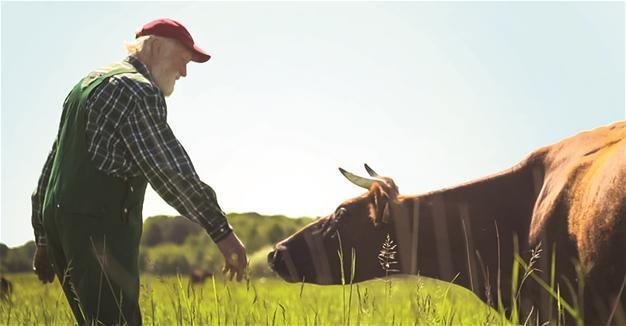Bozcaada to host ecological documentary fest
Emrah Güler

Bozcaada, a beautiful island off the Aegean coast mentioned in both “The Iliad” and “The Aeneid,” is getting ready to host cinephiles and environmentalists this week for the third Bozcaada International Festival of Ecological Documentary (BIFED), to be held between Oct. 12 and 16. Around 50 documentaries will be screened in two venues, including national and international premieres, accompanied by an exhibition of paintings of the island by Zeki Dinlenmiş.
The Bozcaada International Festival of Ecological Documentary is one of the rare examples where local government is an integral part of a cultural event, with Mayor Hakan Can Yılmaz acting as festival president for the last three years. The core festival team was already involved in projects on environment, grassroots movements, workers’ rights, traditional farming and food production when Yılmaz approached them for a grand project for Bozcaada following local elections in 2014.
“We already had the idea of such a festival, and took the opportunity,” Festival Director Petra Holzer Özgüven told the Hürriyet Daily News. “From the beginning, the festival fit all the criteria needed to be classified as an international festival,” which includes submission criteria, a pre-selection process, an international jury, the subtitling of all films (in English and Turkish), screening venues, and publications. BIFED has already been invited to become a member of the Greenfilm Network (GFN), a network with more than 30 festivals around the world.
Bozcaada was a special place for the team long before the festival and the ideal place to organize an ecological documentary festival. “Bozcaada has a very rich and endemic eco-system, endangered by cyanide-mine extraction companies and thermal, coal, power stations,” said Holzer Özgüven. “The island is also under the threat of being overbuilt and a collapse of the fragile eco-system. Another reason for choosing Bozcaada is the appreciation and understanding of such an event by its population.”
Ecology and four main themes
Visiting a festival on an island has its other perks as well. “The festival audience will have the pleasure of being able to move from one venue to the other without panicking about the traffic or time,” Holzer Özgüven reminded festivalgoers. “Everything is in walking distance. There will be the relaxed off-season feeling of Bozcaada. It will be the experience of a holiday with the bonus of watching fabulous documentaries from all over the world.” When you are in between two films, “there are the beautiful tavernas, cafes and fish restaurants. In the festival office, there is a café space where people can meet and talk.”
The overarching festival theme is ecology. “However, there are trends where one can see a general concentration on specific topics,” said Holzer Özgüven. “This year, we have four main themes: Thermal, coal, power stations and coal mines; trash; the extinction of indigenous life space and ways of life; and the hottest topic in documentary, and even in fiction film production, for the last couple of years: refugees.”
The festival will offer an eclectic collection of films from all continents, with half of the films from female directors.
“Christopher Beaver’s ‘Racing to Zero’ is about the trash politics and development in San Francisco while Felipe Pena’s documentary ‘If This Village wasn’t Mine’ is about the demolition of a neighborhood for the Olympic madness in Rio. ‘Sugar Blues’ by Andrea Culková, who will be present at the festival, is a film about sugar, the industry and madness of nutrition in the industrialized food production,” she said.
There will be two awards at this year’s BIFED, the Fethi Kayaalp Award, given to three films, and the GAIA Student Award. The award trophy was designed and made by Feyyaz Yaman, while the promotional tote bag was designed by Nilgün Akyol, an artist living on the island, with a theme focusing on a type of oak, “pelit meşe.”
“The tree has a special place in the history of the island,” said Holzer Özgüven. “The acorn of this oak was used to dye leather. It was a rich source of income for the islanders until they got too greedy and were cut off from the trade.”
Visit www.bifed.org for a detailed look into the program.
 Bozcaada, a beautiful island off the Aegean coast mentioned in both “The Iliad” and “The Aeneid,” is getting ready to host cinephiles and environmentalists this week for the third Bozcaada International Festival of Ecological Documentary (BIFED), to be held between Oct. 12 and 16. Around 50 documentaries will be screened in two venues, including national and international premieres, accompanied by an exhibition of paintings of the island by Zeki Dinlenmiş.
Bozcaada, a beautiful island off the Aegean coast mentioned in both “The Iliad” and “The Aeneid,” is getting ready to host cinephiles and environmentalists this week for the third Bozcaada International Festival of Ecological Documentary (BIFED), to be held between Oct. 12 and 16. Around 50 documentaries will be screened in two venues, including national and international premieres, accompanied by an exhibition of paintings of the island by Zeki Dinlenmiş.